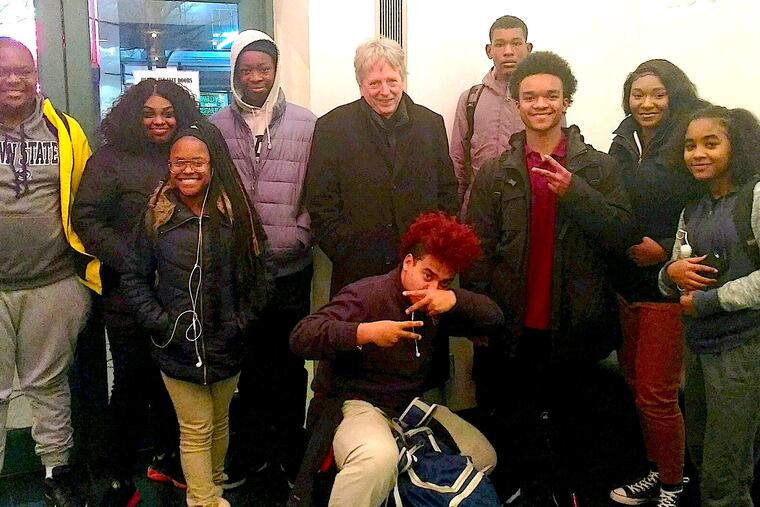Having and being a mentor can change your life. You should try it. | Opinion
My mentor taught me important life lessons, such as the importance of ghosting, keeping your private life to yourself, and Brooks Brothers.

At Mighty Writers, the literacy nonprofit where I serve as executive director, I see up close how important mentors can be for kids. But they can be good for youngish, trying-to-get-grounded grown-ups, too, which is what I was when I first met my mentor nearly four decades ago — Alan Halpern, the founding editor of Philadelphia Magazine.
Alan, who died in 2005, was one of only a few nationally acknowledged pioneers of New Journalism, a revolutionary approach to writing and reporting that came of age in the late ‘60s and ‘70s. New Journalism encouraged writers to employ personal points of view when reporting a story, a literary technique considered verboten by the “who, what, and where” guardians of the journalism world.
You might think an editor who encouraged such an avant-garde approach to journalism might flaunt a free-wheeling persona to match. You’d be wrong. Alan was professorial in look and demeanor, seemingly far more remote than verbose, yet covertly ever-present, able to repeat things you said off-handedly months back. In Alan’s world, words were important, and people needed to stand by them.
I never worked for Alan as a full-time staff person, but I was among his vast legion of devotees, a regular lunch buddy, and a frequent drop-by to his home for counsel. I was, like many, a recipient of his many kindnesses, which always came unannounced and sans fanfare. I’d get a call: “I just spoke to Alan Halpern, and he said you’d be perfect for this job opening we have ...”
Wednesday marks National Mentoring Day, a designation acknowledged mostly by organizations with mentoring programs, like Mighty Writers. In my current role, I get to oversee a growing mentoring program, an initiative no doubt inspired by having a great mentor myself. Having and being a mentor can change your life. You should try it.
Here are just a few life lessons I learned from my mentor:
Read the New York Times every day. “Read the Times every morning, first thing,” he would say. “Do that and you’ll be one step ahead of almost everyone you meet that day.” (FYI: Alan would have surely held fast to the NYT printed version: “They have smart people whose job it is to think about what stories matter and where they should be placed.”)
Knock out the first paragraph. When you finish writing something, or when editing someone else, try knocking out the first paragraph. Often, Alan said, it’ll read much better: “Writers spend the first paragraph doing a little dance.”
Deciding what to wear is an unnecessary distraction. Alan was a sartorial minimalist. He wore pretty much the same thing, with seasonal changes, every day: Khakis, white shirt, and blazer in summer; jeans, white shirt, and warm coat in winter. I once trailed along with him after one of our lunches for a stop at Brooks Brothers. He told the salesperson his size and said he wanted two white all-cotton button-down shirts. “I buy two of these every other year,” he said. “No decisions to make.” Alan found permanent press uncomfortable in summer and believed the cotton ones looked better. (I haven’t worn a no-iron shirt once since that stop at Brooks Brothers.)
Assume anyone who has a complaint with you is right and you are wrong. “It won’t be the case all of the time,” he said more than once, “maybe not even most of the time. But it’s a good place to start.”
Keep your personal life privileged. Alan believed that the more people knew about you, the tighter the box they’d put you in. And being in a box, any kind of box, made it easy to be dismissed. Consequently, Alan was friendly to all, socialized with few, and was measured about anything personal. “There’s power in not being completely understood,” he once told me when I was starting a new job.
Alan was a master of ghosting. Alan was never one for big gatherings, but when pressed to make an appearance, he would arrive on time, have one drink, excuse himself to use the bathroom, then conveniently find the exit. When Alan died, it felt like he had once again ghosted by finding the exit while everybody was busy talking. There are still times when I find myself looking around to see where he went.
Tim Whitaker is the executive director of Mighty Writers, a Philadelphia-based literacy nonprofit.